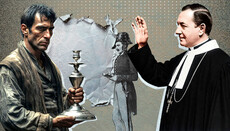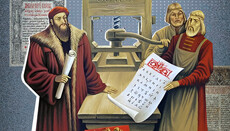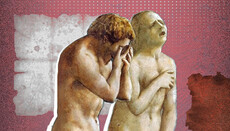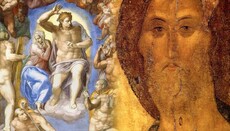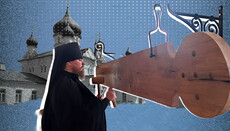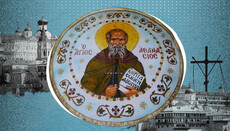Children of the Nazi elite: two different views on fascism
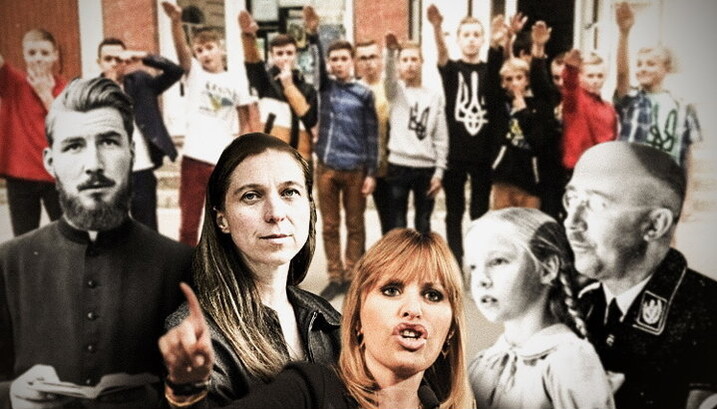
On May 9, we celebrate the 75th anniversary of the Victory. The Nazi crimes were horrific. Yet, we have now to face attempts to justify and revive fascism.
This year we celebrate the 75th anniversary of the victory over fascism. On May 9, 1945, Patriarch of the Russian Orthodox Church Alexy I said the following words: “God has shamed the daring dreams of villains and robbers, and now we see them facing formidable retribution for their atrocities. We confidently and patiently looked forward to this joyful day of the Lord – the day on which the Lord pronounced His righteous judgment over the worst enemies of mankind."
The horrific crimes of the Nazis before humanity have always been obvious to everyone. After 1945, it was impossible to even think that an ideology whereby one nation can consider itself superior to others and therefore destroy entire nations can someday be justified by someone. Now there is no such certainty, however.
Nowadays, formations that fought as part of the Third Reich’s army are heroized in Ukraine, marches and processions are held in their honor, monuments and memorial plaques are opened. Veterans of the SS "Galicia" are welcome guests in schools and children's camps. For many years, Ukrainian children have been raised by the examples of soldiers of the army, which 75-80 years ago killed Ukrainian, Jewish, Russian children by thousands and tens of thousands, pumped blood from them, used them for medical experiments, and so on.
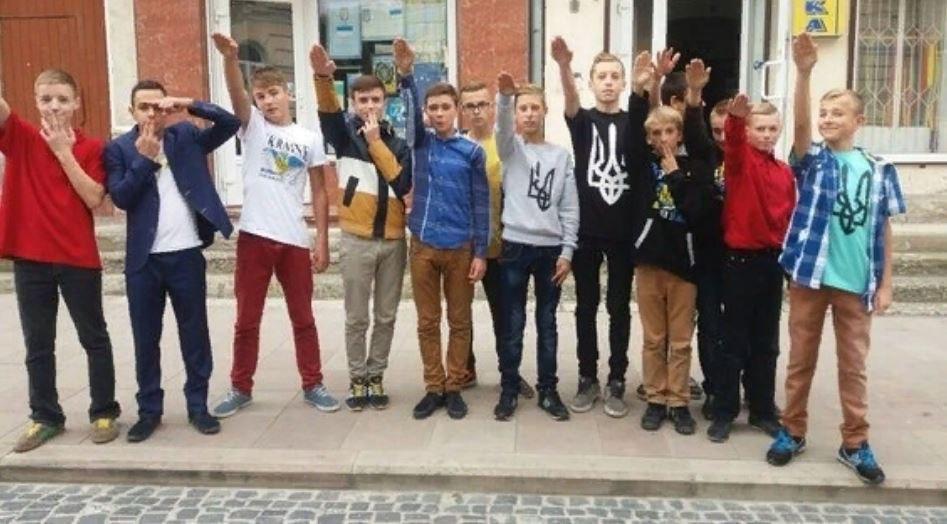
Moreover, it is the attitude of the Nazis towards children that appears to be the biggest mystery.
We know that there are no other children. When a child suffers, it is a tragedy for any normal person. “The happiness of the whole world is not worth a single tear on the cheek of an innocent child,” Fedor Dostoevsky wrote in one of his novels.
It is a well-known fact that many Nazi leaders, such as M. Bormann, G. Himmler, G. Goering, were wonderful fathers, caring uncles. This is evidenced by their children and loved ones. And not only them. However, it is impossible to picture how the same person, who had given lots of affection to one (his) child, could shoot or send another into the gas chamber. How could a person be a loving, gentle father and at the same time a sadist and a murderer? How did he think, how did he feel? Moreover, did he feel anything at all?
We can never fully fathom this. Nevertheless, it is worth taking a look at the idea of fascism through the eyes of those who were closest to its leaders – the eyes of their own children and grandchildren.
Martin Adolf Bormann
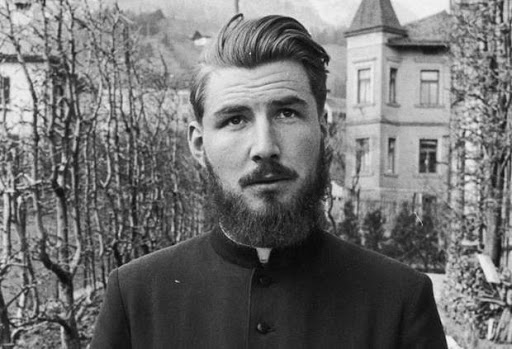
Martin Adolf Bormann was the eldest son of Reichleiter Martin Bormann, Hitler's godson. By the way, Hitler believed that the Christian religion is incompatible with National Socialism, in which he was actively backed by Bormann, who had a negative attitude to Christianity. The paradox is that all members of the Nazi elite tried to spiritually become related to each other through the Church, which they all denied and whose members were persecuted. Maybe, they had some kind of their own surrogate church? It turns out no: Martin Bormann Jr. said that his baptism took place in a regular church.
“The baptismal ceremony was difficult,” he wrote. “Hitler is a Catholic, and my parents are Protestants, therefore, according to church laws, he was not allowed to hold a child. He simply attended the ceremony, was considered as the godfather, and I was in the arms of Ilse Hess, the wife of Rudolf Hess.”
In the spring of 1945, M. Bormann Jr. was 15 years old. A secret order was given to kill the children of Bormann. They had to die, as did the Goebbels children, whom their mother poisoned with cyanide. However, Bormann's personal secretary refused to fulfill this order. He handed the false documents to Martin Bormann Jr. and told him to run away. The 15-year-old boy was sheltered by a peasant, a true Catholic. In 1958, M. Bormann became a Catholic priest.
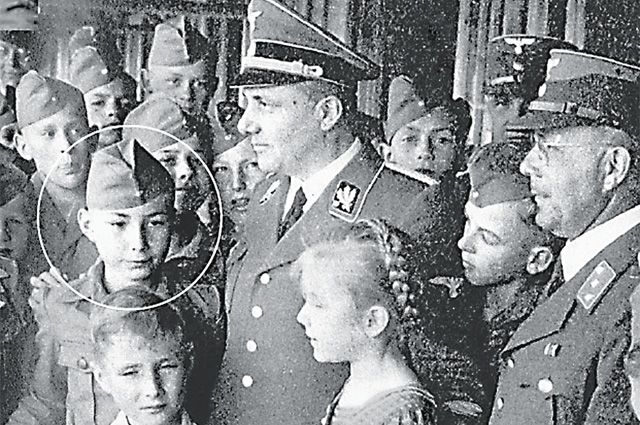
Subsequently, in various interviews, M. Borman told that life in the family of this simple peasant was a real discovery for him. He met true believers while faith was forbidden in his own family.
“Father did not believe in anyone except Hitler. Of course, he was baptized, but for him it was only a formality – even a crucifix did not hang anywhere in the house. On his orders, the church in Obersalzburg, where we lived, was closed. One day my sister, playing, put on her forehead a bandage with a cross and ran to our father so that he would hug her ... I had never seen him so furious. He screamed in a terrible voice, 'Take it off immediately!' and pointed to the cross. The fact that I became a priest would be a betrayal in his eyes..."
It must be said that Martin Adolf (he refused from his middle name with time) became the priest consciously. All his life he felt responsible for everything his father had done and realized that he had to somehow repair it. Every day he came across people whose fates were destroyed by the war. Particularly impressive is his story about a soldier whom, no matter how hard he tried, he could not help. This story, it seems to me, reveals fully the true tragedy of fascism.
“Klaus! Stick this thing with a bayonet!”
“It happened after the war. I had entered the ministry by then. Once, a former Wehrmacht soldier came to me. He said that during the uprising in Warsaw he was among those who cleaned the basements of houses from the rebels. A little girl, about five or six years old, suddenly jumped out and ran out of one basement. But she stumbled and fell near him. He wanted to pick her up and save her. But suddenly he heard the cry of the lieutenant, ‘Klaus! Stick this thing with a bayonet!’ Obeying the order, he stuck her with the bayonet in her chest. She did not scream but suffocated. It was a second. As she was suffocating, she was looking at him. He realized that he had done something unimaginable, something he cannot live with.
He repented 20 years after the war. Since then, the former soldier, who became a postal employee, never married and had no children. According to him, he could not look into their eyes. All the following years, every day, he lived with this memory. He said, ‘God will not forgive me, I can’t imagine what will happen to me for what I did.’ Even as a priest, I did not know what to tell him. A week later, this man hanged himself.
You see, this is not only a real story but also a metaphorical one. This is what most people are like. They will understand everything later. They understand it even now, but at the moment when the life and fate of other people depend on them, they obey the order. They obey the idea. One has to be a man of integrity and constantly think about their deeds and, most importantly, not be afraid to be yourself, not be afraid to refuse fulfilling orders, so as not to commit something terrible at a critical moment.”
Until the end of his days, Martin Bormann, Jr. attended lectures at schools in Germany, trying to explain the whole essence of the Nazism horrors.
With this story, Bormann Jr. urges us to think – every sin, especially a mortal sin, is subject to punishment here on earth. Killing another, a person kills himself at the same moment. An example of this unfortunate soldier is vivid evidence of this. That bayonet, which killed a little Polish girl, still caught up with him after so many years.
Martin Bormann Jr. died on March 11, 2013. Until the end of his days, he attended school lectures in Germany to explain the whole essence of the horrors of Nazism. “The only way to prevent the revival of fascist and racist tendencies is education,” he said. “This is especially true for young people who have not found out Nazism the hard way and besotted with its outward brilliance.”
Throughout his life, M. Bormann never ceased to thank God for his great mercy to their family, since all the children and grandchildren of Martin Bormann Sr. became convinced Christians.
Gudrun Himmler
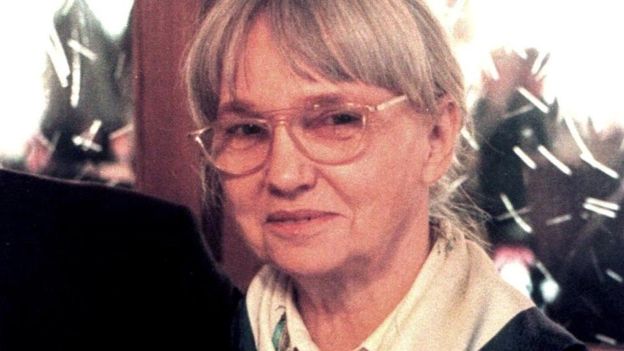
Gudrun Himmler, by marriage Burwitz, never renounced Nazi ideology and devoted her entire adult life to “protecting the good name and memory of her father”. In the only interview she agreed to, she said that “the father is portrayed the most terrible monster of genocide in the world, and I want to prove that this is not so, and I will devote it all my life if necessary”.
One could understand the efforts of the daughter, who is trying to somehow whitewash the name of her beloved father. But Gudrun Burwitz always, right up to her death, remained the advocate of the ideas of Nazism and did a lot to aid the Nazis, who sought to evade retaliation. She was called "Nazi Princess" or “Mother Teresa of the Nazis”.
But didn’t the authorities in post-war Germany know anything about the Nazi sympathies of Himmler’s daughter? It turns out that they just turned a blind eye to that. On June 29, 2018, a month after Gudrun’s death, a small message appeared in the world press that Himmler’s daughter, as it turned out, had worked for the German intelligence services.
The fact that, working for the BND (Federal Intelligence Service of Germany), Ms. Burwitz was also a prominent public figure in the organization “Stille Hilfe” ("Silent Help") was not even mentioned. It could be said that the BND leadership had little interest in this aspect of Ms. Burwitz’s activities, because “Silent Help” was registered as a charitable non-profit organization. But I do not think that it was a secret for the German intelligence services what this group actually was and what it was doing.
“One high-level German official said that Burwitz had a genuine love for these men and women who served the worst parts of the Nazi regime in 1933-1945,” the Daily Mail reporter Tim Stickings wrote. “She was a leading figure in the ominous organization “Silent Help”, which aimed to protect Nazi criminals from falling into the hands of justice.”
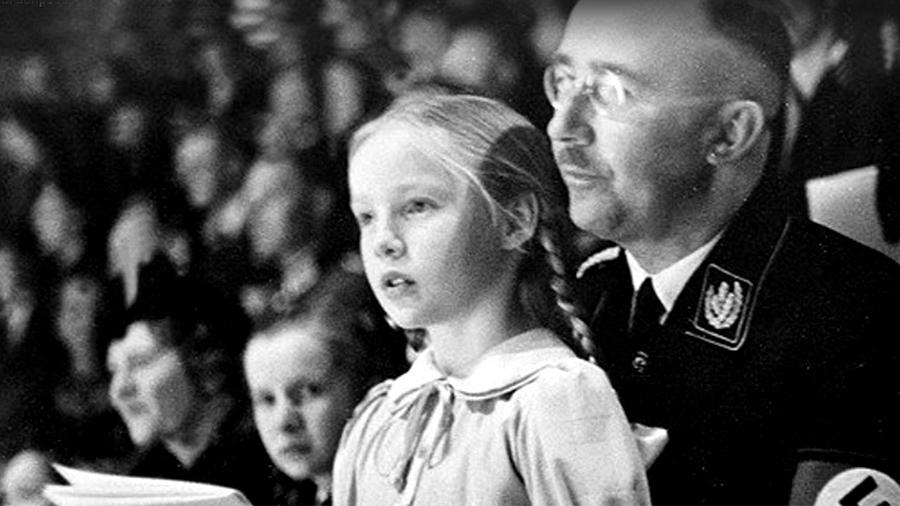
She provided not only legal support to former SS officers but also financial assistance. The “Silent Help” assisted Klaus Barbie ("the Butcher of Lyon") of the Lyon Gestapo and Erich Priebke, the SS murderer of Italian partisans, to escape. And although Klaus Barbie was brought back to court in 1987 and sentenced to life imprisonment, “Silent Help” did not leave him without support.
According to one of the leading experts on the history of Nazism, Briton Guy Walters, the "clients" of "Silent Help" were also Holocaust ideologist Adolf Eichmann, Standartenfuhrer Walter Rauff, one of the SD leaders who was directly involved in the development and implementation of mobile gas chambers, and Dr. Josef Mengele, who conducted experiments over prisoners at Auschwitz. Low-ranked Nazi officials who remained in Germany were also not ignored, they were provided with work, housing, services of lawyers and doctors.
In 1954, on the initiative of Gudrun Burwitz, a Neo-Nazi youth organization, the “Wiking-Jugend”, was created. Modelled after the “Hitlerjugend”, it lasted as long as 40 years. Only in 1994, its activities were recognized as unconstitutional and banned. With regard to “Silent Help”, the German authorities only managed to abolish the status of a charity. After a series of scandals and journalistic investigations, “Silent Help” no longer emerge in the information space, although it is still listed in the German Association Register and is believed to finance illegal neo-Nazi organizations in Germany and other European countries.
Gudrun Burwitz, until her death in 2018, lived in Munich 15 kilometers from Dachau, where, on the orders of her father, 30,000 people were killed. A neat, modest, smiling, adoring her husband and granddaughter, on Sundays regularly attending Mass, decent German pensioner. But until the last days, she remained faithful to her ideas.
A few years ago, at the age of “well over eighty”, she attended a neo-Nazi rally in Ulriksberg, Austria, where she was “idolized by the surviving SS veterans”, reports the Daily Mail journalist Tim Stickings mentioned above. “She walked around the older Reich soldiers, lined up in front of her, still keeping the bearing of the Third Reich, and each of them trembled, stretching out in front of her and reported in which unit he had served. She is in over 80 but pin sharp, has an excellent memory, and is showing off a vast knowledge of military logistics. She is her father, but in a female expression She is a true believer, and, like all zealots, that makes her dangerous."
Katrin Himmler
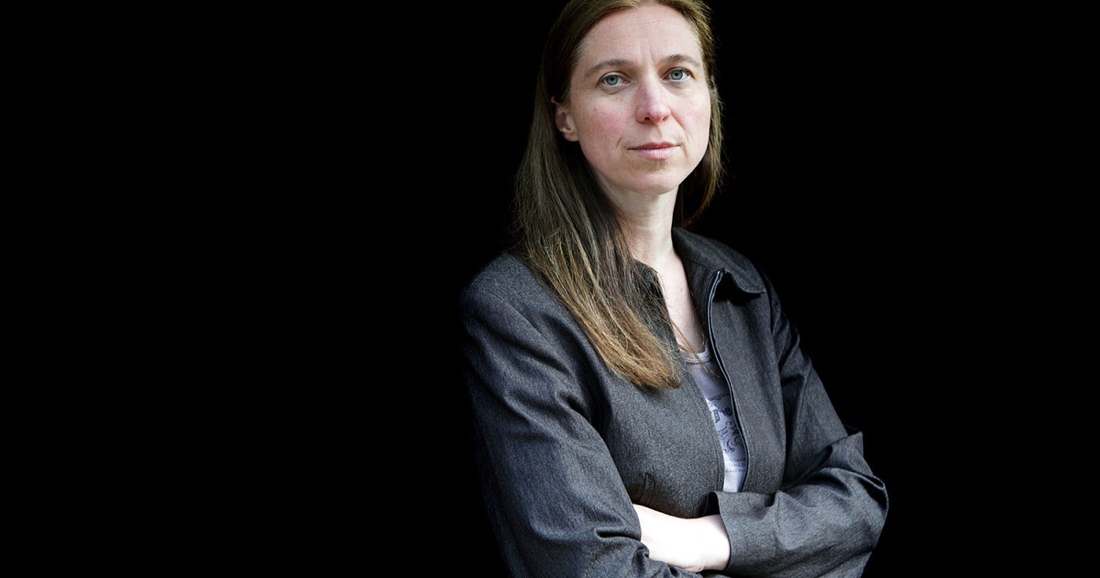
Onсe, in a history class, a classmate jokingly asked 15-year-old Katrin Himmler if she was a relative of the very Heinrich Himmler who went down in history as one of the darkest figures in Holocaust history. "He's my great uncle," Catherine answered. Then, as she remembers, the lesson continued in complete silence.
"It's a very heavy burden when you have such a legacy," admits Katrin Himmler. According to her observations, the descendants of former Nazis most often go to extremes: they either try to forget about the past, forever renouncing their ancestors as a monstrous page in the history of their family or, on the contrary, completely deny any negative, choosing unconditional love and devotion.
Rare individuals, such as Martin Bormann Jr., for example, try to realize what happened, not by crossing anything out of the past, but by drawing a lesson and making the right conclusions. But that requires a lot of inner strength and courage. Katrin admits that she faced a similar choice. When she tried to talk to her father about her family's past, he just couldn't talk.
In 2005, Katrin wrote and published the book “Die Brüder Himmler" (“The Himmler Brothers"). While working on the book, she had to reread many letters from the family archive. And only then, by her own admission, she realized the full depth of the tragedy that had occurred to her family. She thought long and hard about the path that her great-uncle, Heinrich Himmler, had taken.
"In his childhood and youth, faith was very important to him. Although the ideology of the German race as the highest value gradually destroyed a Christian in him, he finally broke with the Catholic Church only in 1936. By that time, most SS members were already complete opponents of Christianity. I think by nature he was by a man who had to truly believe in some big idea. Look at how much time and energy he devoted to developing rituals for all kinds of secret SS ceremonies, and you will understand that this is a sublimation of religion.”
Ironically, Katrin married an Israeli citizen, a descendant of a former Warsaw ghetto prisoner. She deliberately did not change her last name and believes that one must have the courage to face the truth, because her family is not something out of the ordinary, as it may seem at first sight. Many German families still maintain a policy of silence or make up some myths about the role of their grandparents in the horrors of the past war.
"There is still a huge difference between official history and how it is told in the family circle," says Katrin Himmler. “Many young people are well aware of the Holocaust, but they are also convinced that their grandparents were against the regime and, of course, wanted to hide a Jew in their home. They don't really believe it, but they are trying their best to convince themselves of it.”
But, as Katrine admits, she is much more concerned about the inner relaxation and passive attitude towards the proliferating neo-Nazi groups rather than the unwillingness of today's young people to take a sober look at the historical truth.
"I am very afraid of the resumption of neo-Nazi activities. I think now is a good time to get down to this problem and understand what's going on," says Katrin Himmler.
Alessandra Mussolini
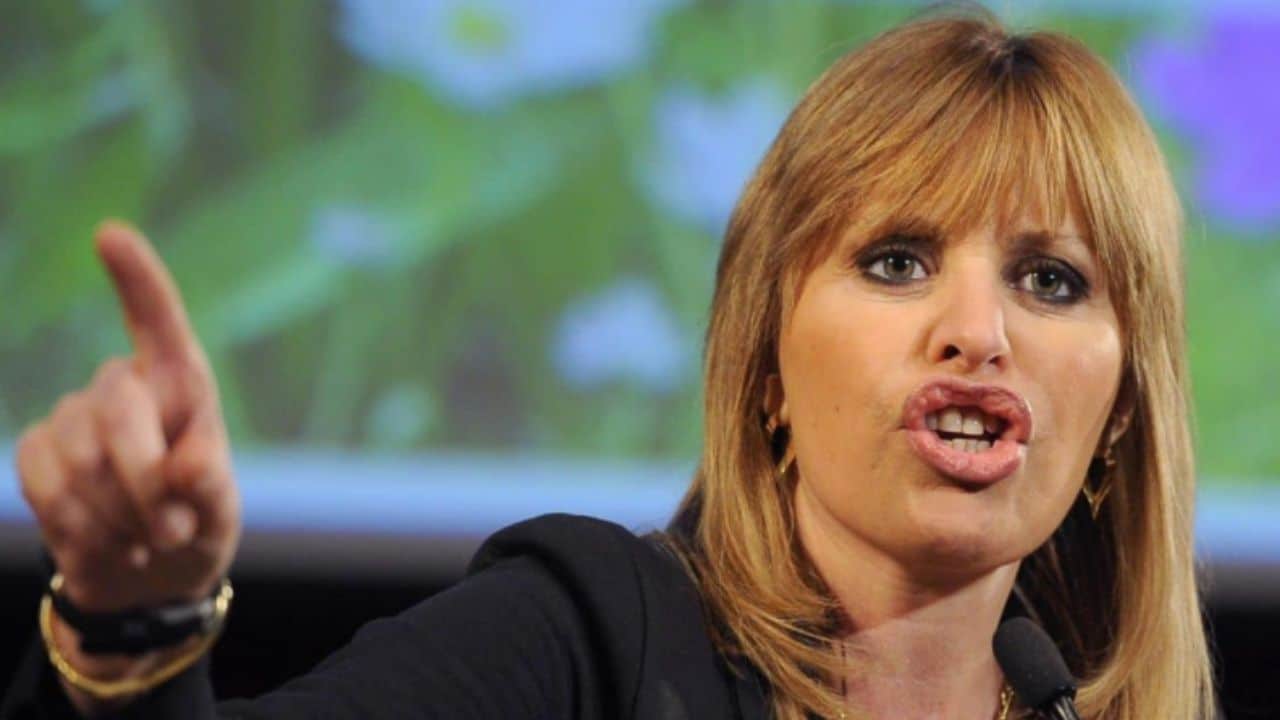
Unlike some other descendants of the Nazis who unwittingly feel guilty for their origin, the Italian politician Alessandra Mussolini is proud of her grandfather Benito Mussolini. Alessandra was born in Rome, her father was the third son of an Italian dictator. Alessandra Mussolini is a member of the European Parliament from Italy. She founded the neo-fascist party "Social Movement".
Not long ago, the name of Alessandra Mussolini was involved in the scandal when she said that she would sue anyone who somehow offended Mussolini’s memory and threatened to bring to court anyone who dared to say something disrespectful about her grandfather on the Internet, which caused the protest of Italian Jews and anti-fascists.
“With her threats, Alessandra Mussolini went too far to ignore them,” said Riccardo Pacifici, the former head of the Jewish community of Rome. “A. Mussolini’s threats are all more outrageous because she is a member of the European Parliament. Six million Jews killed and 75 years were not enough for her to understand what the fascist regime led to.”
Roberto Della Seta, a Jewish politician, writer and environmentalist, wrote on his Twitter: “Through the fault of Benito Mussolini, my father was expelled from school at the age of 16, and because of his followers, sixteen members of our family fell into the hands of the Nazis and died in Auschwitz. Will I offend you, Alessandra Mussolini, if I say that your grandfather was a criminal?"
Enrico Fink, an Italian Jew, musician and actor, wrote on Facebook: “Dear Alessandra Mussolini, I read that you intend to sue anyone who offends the memory of your grandfather. I fully understand your feelings: your grandfather was killed at the end of the war, you did not happen to meet with him, which you regret, and you want to protect his memory. We have a lot in common, my grandfather was also killed, I also did not happen to meet with him, which I regret. But the problem is that the person who is responsible for the death of my grandfather is your grandfather.”
* * *
As you can see, the children and grandchildren of those who are regarded as monsters in human guises have a different attitude to Nazism.
75 years have passed since the end of one of the bloodiest wars in human history. Still alive are those who can tell us about it from their own experience. However, what do we see in the present-day world? Fascism, oddly enough, again is increasingly raising its head.
But was it not defeated? Swept away, crushed to the ground? Obviously not. It simply went into the shadow for a while, retreated, gave up his position for a while. Because fascism is not somewhere out there. It is in the heart. And while the Victory Day is not celebrated in every single heart, fascism will constantly remind itself. And not just remind, especially if we are all indifferent, silent witnesses.
Auschwitz (the German name for the Oswiecim camp), as was said during events commemorating the victims of the Holocaust not so long ago, did not fall from the sky. And now it can be said with full responsibility that the seeds of the new Auschwitz have long been sown and sprung up wildly. Not only in our country but all over the world.
But those who sow and cultivate them should not forget that Auschwitz is not only an opportunity to satisfy the “patriotic” dreams of the exclusivity of their people and their nation. Auschwitz is also a shot at oneself. And the evidence of this is a short, almost unknown story of a simple soldier who, obeying the order and ideological propaganda, killed a little girl.
